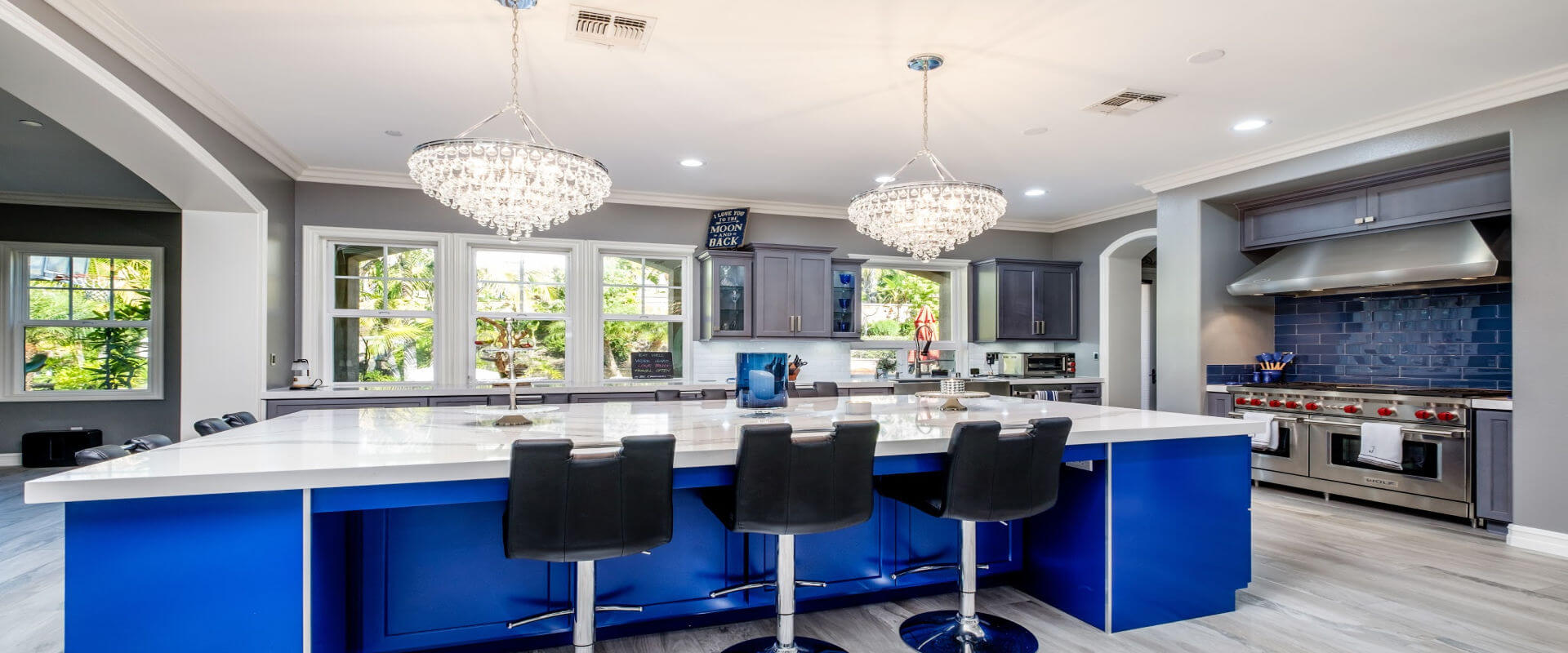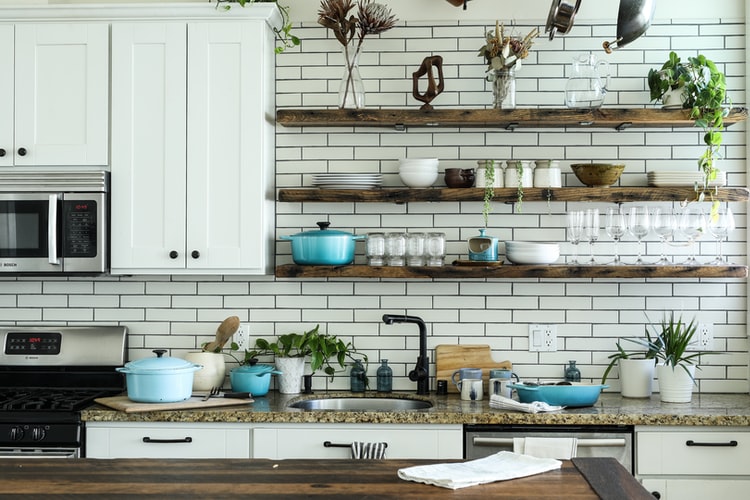Preparing meals usually start by putting everything up on the countertop surface, which means that its cleanliness must be maintained on a regular basis to prevent contamination. On top of the coronavirus threat, the kitchen is also prone to a variety of microbial species that can harm everyone living in the household. In fact, there are studies suggesting that kitchens harbor more bacteria than the bathroom.
Some of the most common germs that can be found in modern kitchens include salmonella, E.coli, and listeria. Apart from the sink, your countertops might just become another ideal place for them to grow and multiply.
Countertops that are made from porous materials such as wood and natural stone have tiny recesses that can provide an excellent living environment for germs. A porous countertop surface infested with these critters will typically get some stains, ruining the beauty of the stone or wood in the process.
In order to get rid of germs, it is essential that you go for non-porous material before installing a new kitchen countertop. Here are the most popular examples of countertop materials that can minimize the existence of germs in your kitchen:
Solid Surface Countertop
A solid surface countertop tends to possess typical non-porous qualities like resisting stains and water damage. Cleaning this material only requires wiping the surface with a cotton cloth soaked in warm and soapy water.
Laminate Countertop
The most affordable countertop material, laminate countertops are not compromising quality in exchange for a low price. Many laminate countertops in the market are designed with antimicrobial properties and are capable of mimicking other materials like natural stone and wood. Like the solid surface, laminate countertops are also easy to clean, though keep in mind that they are not as durable as other materials and excessive damage or exposure to moisture can result in swelling, inviting fungus and molds to grow.
Granite Countertop
It might be counter-intuitive to include granite on this list because like marble, granite is another type of natural stone and is considered to be a porous material. However, what makes granite a germ-free material is that it doesn’t absorb too much water or moisture. Sealing granite countertops further decreases its porosity, making it a low-maintenance material. Granite is sensitive to harsh chemicals and bleach, so avoid using such agents when cleaning its surface.
Quartz Countertops
Made from engineered stone, quartz countertops can be considered as the current crème de la crème of today’s countertop materials. Having high durability and a wide range of choices in design, the majority of kitchen remodeling contractors and countertops installers recommend quartz countertop for a more hygienic kitchen. Its non-porous properties enable the surface to be free of germs and wiping it with a piece of non-abrasive cloth, and soapy water is enough to keep it clean.
If you’re interested in installing a new kitchen countertop, visit our official website at https://bestkitchencountertops.com/appointment-form/ and schedule your appointment today! We can also let you visit our showroom by contacting us at 800-581-6178.


